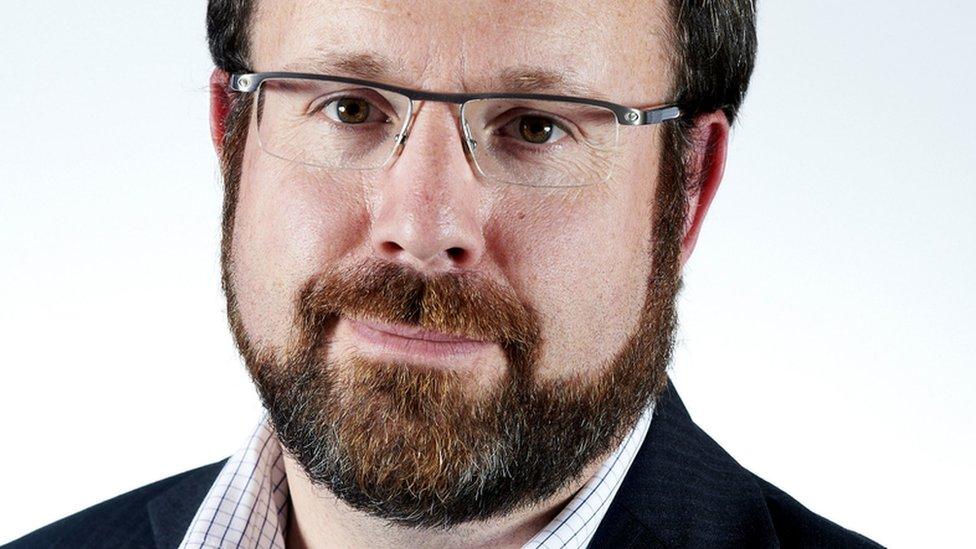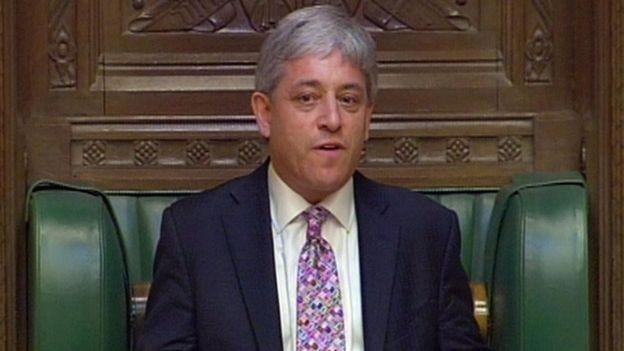Schools close to funding breaking point, warn heads
- Published

The government says it is making school funding fairer
Nearly two-thirds of school leaders (64%) in England are making significant cuts or dipping in to reserves to fill deficits, a head teachers' union warns.
The National Association of Head Teachers says increased employer costs for national insurance and teachers' pensions will put schools under strain.
The NAHT says heads are having to cut back on areas such as equipment, maintenance and teaching assistants.
The Department for Education said it was protecting the schools budget.
The NAHT's questionnaire of 1,069 school leaders (the majority of whom, 82%, were primary heads) found that:
over three-quarters (76%) of heads were using reserves
64% were reducing investment in equipment
half were reducing their maintenance budget
49% were reducing numbers or hours of teaching assistants.
The NAHT survey also found almost half of school leaders (45%) thought their budget would be untenable, on current projections, within two years.
Two-thirds (67%) said they would not be able to balance the books in four years' time, and 7% of those surveyed were already running a deficit.
Four in five (82%) said budget cuts would have a negative impact on standards.
NAHT general secretary Russell Hobby said: "Flat cash education spending at a time of rising costs is pushing many schools closer to breaking point.
"Employer costs for national insurance and teachers' pensions will increase by over 5% from this school year, adding to already over-stretched budgets.
"School leaders are being forced to cut spending in all areas, including essential maintenance and - most worryingly - on teachers and teaching assistants.
"Education is an investment in the future, leading eventually to higher productivity, better social outcomes and reduced spending on other public services - cuts to this budget are a false economy."

Russell Hobby says cuts to the education budget are a false economy
A spokesman for the Department for Education said: "We are protecting the schools budget, which will rise as pupil numbers increase.
"This government is committed to making sure schools are funded fairly so all pupils have access to a good education - a key part of our core mission to raise standards across the country and make sure every child reaches their full potential.
"We have made significant progress towards fairer funding for schools, through an additional £390m allocated to 69 of the least fairly funded areas in the country - the biggest step toward fairer schools funding in 10 years."
"It is down to councils to determine exactly how funding is allocated to individual schools."
Key cost increases faced by schools include:
the average public-sector pay settlement of 1% per year
a rise in employer National Insurance contributions from April 2016
an increase in employer contributions to the Teachers' Pension Scheme.
Shadow education secretary Lucy Powell said the report highlighted the very big financial challenges that schools will face over the coming years.
"Yet schools are supposed to be a "protected" expenditure. The reality is very different. Other education areas face even more difficulties in childcare and 16-19 studies."
Bercow speaks out
Last month, the Institute for Fiscal Studies said spending per pupil in England's was likely to fall by 8% in real terms over the next five years.

The Speaker is politically impartial but can deal with his constituents' problems like other MPs
The IFS says this will be the first time since the mid-1990s that school spending has fallen in real terms.
At the same time, more than 90 Conservative MPs wrote a letter demanding ministers urgently rewrote the rules for funding schools in England.
In an unusual move, Commons Speaker John Bercow put his name to the letter intended to put pressure on Chancellor George Osborne ahead of the Spending Review.
- Published21 October 2015
- Published18 September 2015

- Published16 March 2015
